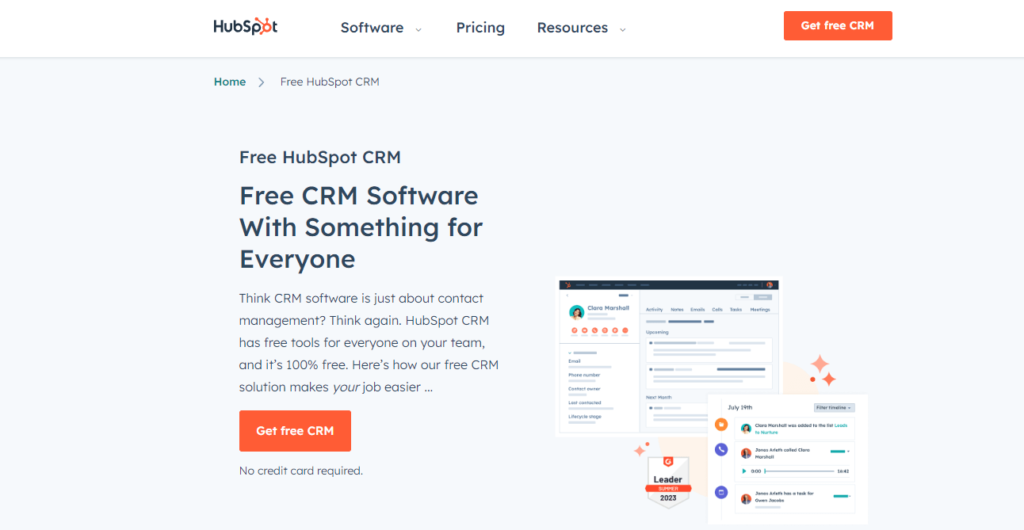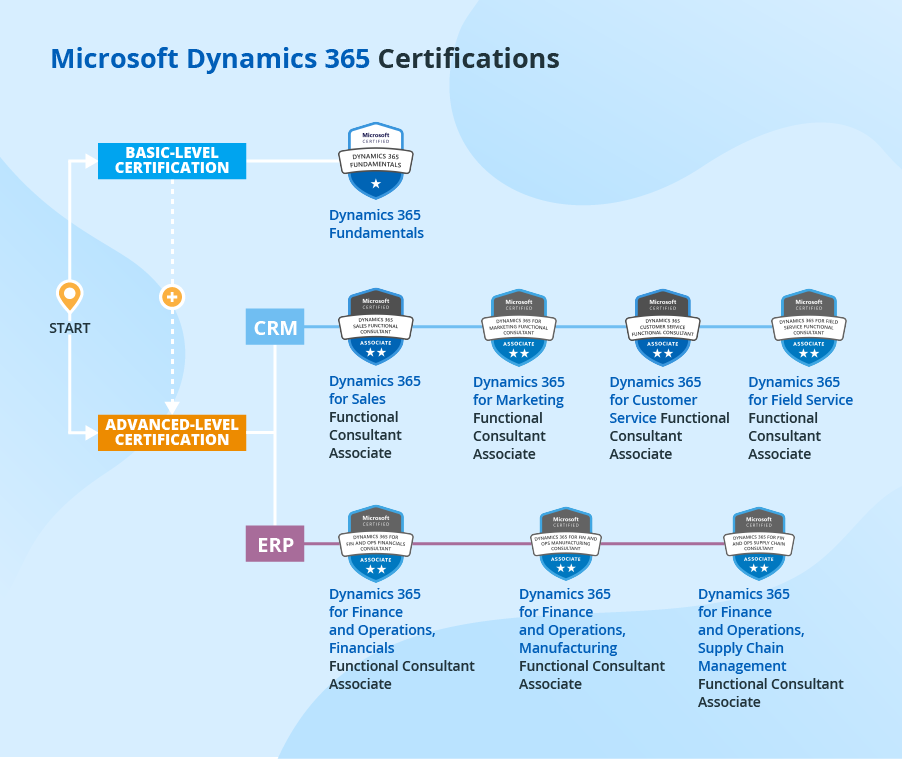In the modern business world, both Customer Relationship Management (CRM) and Enterprise Resource Planning (ERP) systems are critical tools for improving efficiency, streamlining operations, and enhancing decision-making. However, these two types of systems serve different purposes and are designed to address different organizational needs. Deciding which one to choose depends on your business’s specific objectives, size, structure, and industry requirements. This comparison will delve into the key differences, pros, and cons of CRM and ERP to help guide your decision.
What is CRM (Customer Relationship Management)?
CRM is a system focused primarily on managing and improving customer interactions. It helps businesses build stronger relationships with customers by tracking sales, marketing, and customer service activities. CRM solutions enable organizations to better understand their customers, drive customer loyalty, and ultimately increase revenue through more personalized service and targeted marketing efforts.
Key Functions of CRM:
- Customer data management (e.g., contacts, interactions, purchasing behavior)
- Sales pipeline management and opportunity tracking
- Customer support and ticketing systems
- Marketing automation (email campaigns, customer segmentation)
- Reporting and analytics on customer behavior and sales performance
Who Uses CRM?
- Sales teams: For managing leads and opportunities
- Marketing teams: For segmenting and targeting customers, running campaigns
- Customer support teams: For managing customer inquiries and service requests
- Management teams: For gaining insights into sales performance and customer satisfaction
What is ERP (Enterprise Resource Planning)?
ERP is a more comprehensive system designed to manage and integrate key business functions across an organization. It provides a unified platform for managing processes such as accounting, procurement, manufacturing, inventory management, human resources, and supply chain operations. ERP systems are designed to ensure that data is accessible across departments, improving collaboration, operational efficiency, and decision-making.
Key Functions of ERP:
- Financial management and accounting (e.g., general ledger, accounts payable/receivable)
- Supply chain and inventory management (e.g., procurement, stock levels)
- Manufacturing and production scheduling
- Human resources management (e.g., payroll, performance tracking)
- Reporting and analytics across business operations
Who Uses ERP?
- Operations teams: For managing supply chain, inventory, and production processes
- Accounting and finance teams: For managing financials, budgeting, and reporting
- HR teams: For managing employee records, payroll, and recruitment
- Management teams: For gaining a holistic view of the organization’s operations and performance
CRM vs. ERP: Key Differences
| Feature | CRM | ERP |
|---|---|---|
| Focus | Customer interactions and relationships | Internal business processes and resource planning |
| Scope | Sales, marketing, and customer service | Broad operations (finance, HR, supply chain, etc.) |
| Primary Users | Sales, marketing, customer support teams | Operations, finance, HR, IT, and management teams |
| Integration | Often integrates with email, marketing, and social media tools | Integrates various departments (finance, HR, manufacturing, etc.) |
| Data | Customer data, interactions, and behaviors | Operational data such as finances, inventory, production, and employee records |
| Decision-Making Focus | Enhancing customer experience and sales growth | Optimizing overall business efficiency and resource utilization |
CRM: Pros and Cons
Pros:
- Improved Customer Relationships: A CRM system helps businesses manage all customer interactions, enabling personalized communication and support that leads to better customer satisfaction and loyalty.
- Increased Sales and Revenue: By tracking sales opportunities, managing leads, and optimizing sales workflows, CRM helps sales teams close deals faster and boost revenue.
- Targeted Marketing: CRMs provide detailed customer data and insights that allow for more personalized and effective marketing campaigns.
- Streamlined Customer Service: CRM systems help track customer inquiries and issues, enabling customer service teams to resolve issues efficiently and improve satisfaction.
- Actionable Insights: CRMs offer advanced reporting tools, providing sales teams and management with insights into customer behavior, sales performance, and trends.
Cons:
- Limited Scope: CRMs focus only on customer-facing aspects of the business, neglecting other operational areas like supply chain, finance, or HR.
- Data Silos: Without integration with other systems (like ERP), a CRM may create isolated customer data, making it difficult to get a holistic view of the business.
- Implementation Costs: Depending on the complexity of the CRM, implementation and training can be costly and time-consuming.
- Dependence on Data Quality: The effectiveness of CRM depends on the quality and accuracy of the data entered into the system. Poor data can lead to poor insights and decisions.
ERP: Pros and Cons
Pros:
- Comprehensive View of Operations: ERP systems provide a unified view of all business processes, helping to optimize and streamline operations across multiple departments.
- Efficiency and Automation: By automating tasks like accounting, payroll, inventory tracking, and procurement, ERPs help eliminate manual processes, reducing errors and increasing efficiency.
- Data Accuracy: ERP systems centralize data, improving accuracy and reducing discrepancies between departments.
- Improved Collaboration: ERP enables seamless communication between departments (finance, HR, operations), leading to better coordination and decision-making.
- Better Decision-Making: With real-time data and reporting, ERP systems provide valuable insights into all aspects of the business, facilitating better decision-making.
Cons:
- High Implementation Costs: Implementing an ERP system is a significant investment in terms of both time and money, especially for larger organizations with complex needs.
- Complexity: ERP systems can be complex to set up and use, requiring significant training for employees to navigate and operate effectively.
- Customization Challenges: Customizing ERP systems to fit a specific company’s needs can be expensive and time-consuming.
- Rigid Processes: Many ERP systems are built around standard processes, which may not fit well with highly customized or unique business workflows.
- Overkill for Small Businesses: Smaller organizations with simpler needs may find an ERP system too complex or unnecessary, especially if they do not need comprehensive management of back-end operations.
Which Should You Choose: CRM or ERP?
Deciding between CRM and ERP depends largely on the specific challenges and objectives your organization faces. Here are some guiding considerations to help you choose:
Choose CRM if:
- Your primary goal is to improve customer engagement and sales performance.
- You are focused on marketing automation, lead management, and improving your customer support processes.
- You need better insights into customer behavior and how to optimize sales and marketing strategies.
- Your organization already has strong internal processes in place and needs a system to improve customer-facing operations.
Choose ERP if:
- You are looking to integrate and streamline back-office operations across departments such as finance, HR, and supply chain.
- You need a comprehensive view of your entire organization, including both internal processes and financial management.
- Your business is growing and you need a scalable solution that can handle increased complexity across multiple departments.
- You require automation of internal processes like inventory management, payroll, and production scheduling.
Consider Both (CRM and ERP) if:
- Your organization needs both customer-facing tools for sales and marketing (CRM) and back-end management tools for finance, HR, and operations (ERP).
- You want a holistic system that enables data sharing and integration across departments, providing both a unified view of customer interactions and internal operations.
- You are ready to invest in integrating both systems for a comprehensive solution that addresses all aspects of your business.
Conclusion
CRM and ERP systems offer distinct advantages, and your decision should depend on your business’s specific needs. CRM is ideal for businesses focused on improving customer relationships, sales, and marketing, while ERP is better suited for organizations that need to streamline and integrate internal operations. In many cases, implementing both CRM and ERP will allow your business to optimize both customer-facing and internal processes, leading to enhanced operational efficiency, improved customer satisfaction, and ultimately, business growth.

